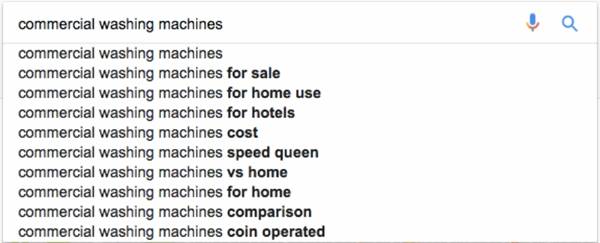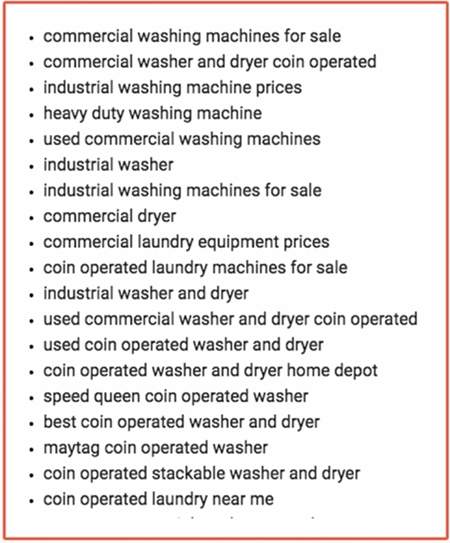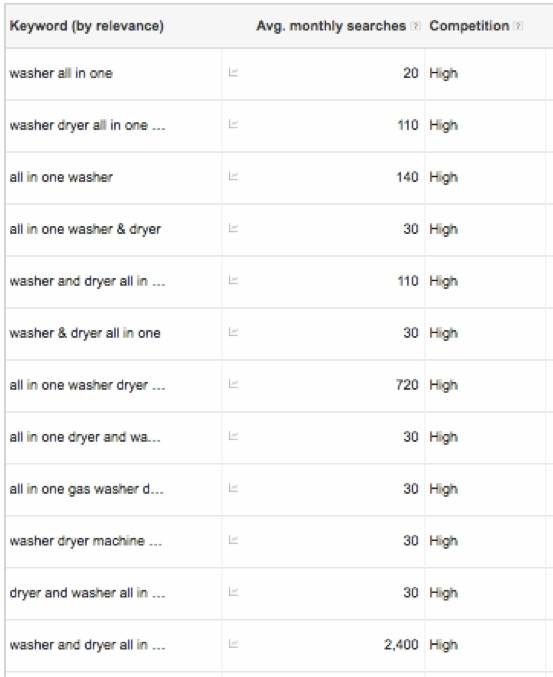LSI keywords are one of the latest and greatest trends and tools in search engine optimization. The snazzy sounding digital marketing acronym stands for latent semantic indexing, which isn't nearly as confusing as it sounds.
It just means that an LSI keyword is a keyword that is commonly related to or paired with another primary keyword that people use to search.
They are discovered over time based on data from people's search patterns and behavior, with various algorithms figuring out which search terms are related to one another.

According to Google, LSI keywords are useful for making its search function better by guessing what people are really looking for, and it has recommended using them on your webpage to help improve its ranking.
How Do LSI Keywords Improve Your Rankings?
Search algorithms look over every webpage they can and determine exactly what that page is relevant for. In short, Google is identifying primary keywords and determining the topic of that page.
Moreover, it's only natural that those primary keywords would be surrounded by hyper-relevant, similar, and supporting keywords. Enter LSI keywords: LSI keywords can be used to determine the content and quality of what's on each webpage.
Overall, an optimal amount and use of both primary and secondary LSI keywords on a webpage greatly increase its chances of ranking highly.
But let's take a deeper view into how Latent Semantic Indexing keywords can really help your content (and rankings) shine.
- LSI keywords protect your website. Finding good LSI keywords is helpful in avoiding penalties for using a primary keyword too much. Search algorithms have gotten much better at picking out keyword-stuffed content, which hurts your rankings. If you're trying to avoid this problem, or to recover from this type of penalty, replacing some of your primary keywords with LSI variations are an easy way to do so. If you think about it, LSI keywords appear naturally in deep and thorough content that answers the searcher's query—which is Google's mission, after all!
- Target more keywords. More keywords lead to more visits to a page, and more visits lead to more sales. The argument for using LSI keywords here is dead-simple. You can use different LSI keywords to not only make your content unique, convincing, and relevant to your visitors but also reach a larger audience and outrank your competitors. (Longer-tail keywords tend to be less competitive but they signal higher intent, so that is a true win-win here.)
- Help with paid search. Looking for creative ways to refresh and improve your PPC ads can be a time-consuming and draining process. Keywords are crucial in the limited space advertisements allow, but rephrasing your main keywords is limiting and isn't always enough. Incorporating LSI keywords into your PPC campaigns can do a lot to improve your conversions and give you useful marketing information; LSI keyword iterations can help with quality scores on broad match searches and show more relevant info to assist in conversions.
An LSI Keyword Example
Let's look at the search phrase "Commercial Washing Machines."
When we type this into Google we receive the following autocomplete results:

Now there are some great iterations in there, but since this is all still somewhat broad you will want to take it a step further. All the results mentioned the core keyword, but we are looking for LSI keywords. You can then take use a tool like LSI Graph to get the following results:

Although there are some false positives with any of these tools, there are always some gems as well. This type of keyword research goes a long way toward helping the search engines and the users.
But wait, there's more.
Now that you've done the first couple of steps, go into AdWords and break out the trusty keyword planner tool. Grab one of the top-ranking search results for that keyword and plug the URL into [Your Landing Page].
We put ABT's Commercial Washing Machine Page into the trusty keyword planner under the URL input:

The suggestions provided by a search engine when typing into the bar are the representation of years of hardcore data, giving you yet another layer of good LSI keywords that you should be targeting.
Now, you are obviously not going to be able to do a great job of incorporating keywords in only a couple of hundred words of content. Google is favoring more thorough information for organic results, so a lot of websites (even e-commerce) should be considering adding more content to support these trophy phrases. We recommend approximately 1,000 words of content on your most important category and product pages.
If you think about it, a lot of these keywords would naturally appear in good, thorough content anyway; now there is just more of a known formula to adhere to what Google is looking for. In real-life cases, incorporating LSI keywords leads to more rich and better content that keeps the user on the page longer, assisting in dwell-time length and decreasing bounce rate.
Next, we'll go over some of the tools you can use to make your pages stand out as more relevant and rank higher in the SERPS.
Top 4 Tools for Finding LSI Keywords
The benefits of LSI keywords are numerous, and they speak for themselves, but how can you find them? You can use a thesaurus all you want, but ultimately you need to know what real-world search volume and patterns are telling Google.
Besides Google Suggest, I'm giving a shout-out here to our top 4 favorite tools to help find LSI keywords.
- UberSuggest is a popular and powerful LSI tool that runs through every Google Auto Complete keyword for the term you give it. Its interface also makes it easy to use. This tool has helped us find less competitive keywords for newer clients to get them some quick wins as well as generate supporting keywords.
- LSI Graph is a free and simple keyword tool, easy enough for anyone to use. It simply asks you for a main keyword in the search bar and then generates a list of what it decides is the most relevant terms associated with it.
- Keyword Tool, a rival to UberSuggest, is a great alternative that works in a similar way. It helps figure out what keywords people are using in search and generates up to 750+ suggestions for any primary keyword.
- Google Keyword Planner Tool is an old-school but helpful tool that most markets are aware of and have probably used. While it's aimed at AdWords and requires you to log into a Google AdWords account, it can be used in a variety of ways and is tried and tested. Another way to use the Keyword Planner is to scan the top couple of organic results in the planner to identify partial matches and LSIs.
Conclusion
As Google continues to develop its deep learning algorithm assessing the most relevant and authoritative content, LSI keywords will continue to carry more weight. Adding this tactic to your overall strategy takes a little research and effort, but it can only help user experience and organic rankings and traffic.
Jump on the LSI keyword bandwagon early to stand out before your competition does.




